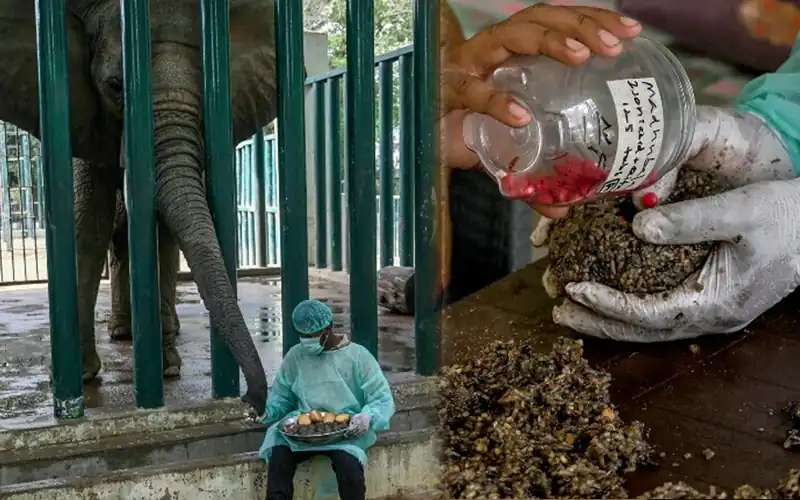At Karachi’s Safari Park, two elephants suffering from tuberculosis (TB) are undergoing a difficult treatment that involves swallowing around 400 pills a day, hidden in tasty food.
Madhubala and Malika, both African elephants, are given human TB medication mixed into apples, bananas, sweets, and special rice-lentil balls with sugar cane molasses to mask the bitterness.
The weight-based dosage is necessary because each elephant weighs nearly 4,000 kilograms. But at first, both animals rejected the bitter pills, sometimes even charging at their handlers at Karachi’s Safari Park.
“Treating TB in elephants is always challenging,” said Dr. Buddhika Bandara, a Sri Lankan vet who flew in to lead the treatment. “They showed stress, but now are adapting.”
Bandara, who has cured over a dozen elephants in Sri Lanka, says the Karachi pair are responding better day by day with changing techniques used to gain their trust.
The 22-year-old Zookeeper, Ali Baloch, prepares the medicine-laced meals every morning, saying he understands the pills taste bad but tries to make the food more appealing to the elephants.
The four mahouts feeding them wear scrubs and face masks to avoid catching TB, which infects over 500,000 people yearly in Pakistan. Elephants can catch TB from humans too.
Madhubala and Malika tested positive after the death of Noor Jehan in 2023 and Sonia’s passing in 2024, both from TB. Later, the park formed a special care team for the survivors.
Dr. Naseem Salahuddin from Indus Hospital said it was shocking to find elephants with TB and that the case has sparked medical interest across student and research circles. Despite past criticism of Karachi Safari Park’s animal care, the staff is now hopeful that this year-long effort will save the park’s last two elephants.












